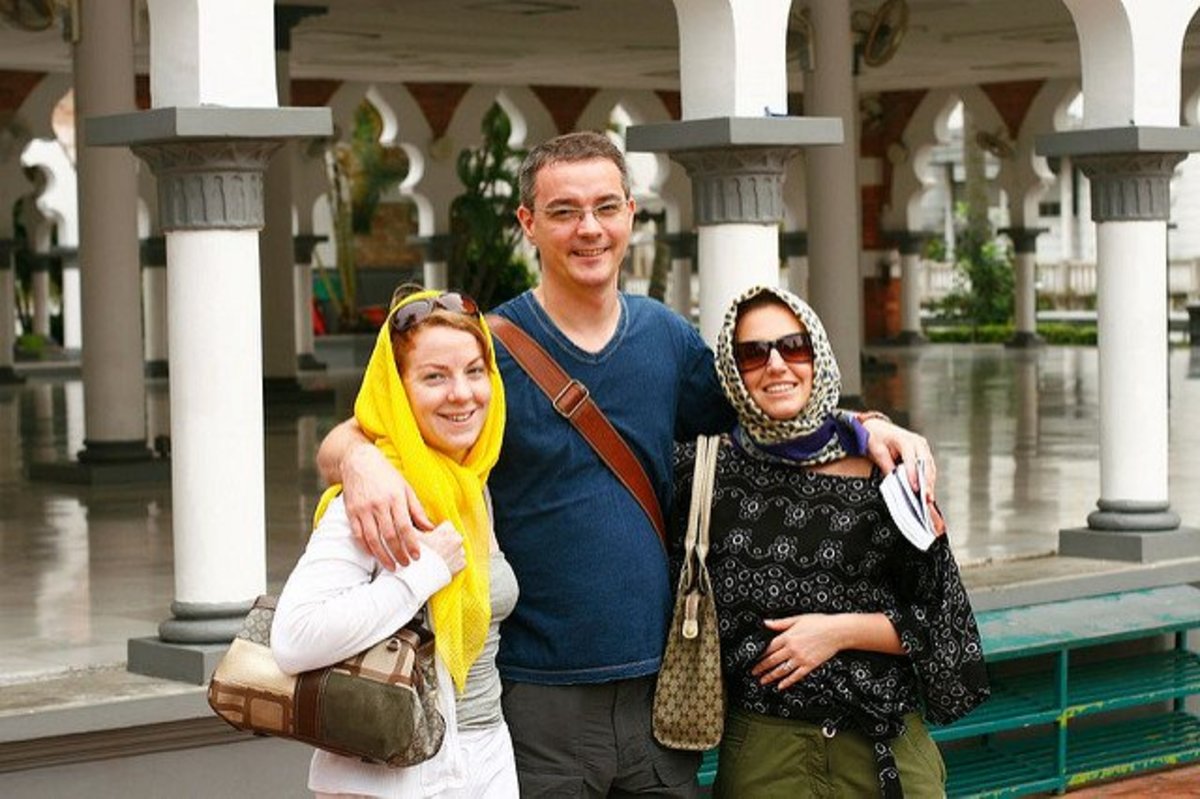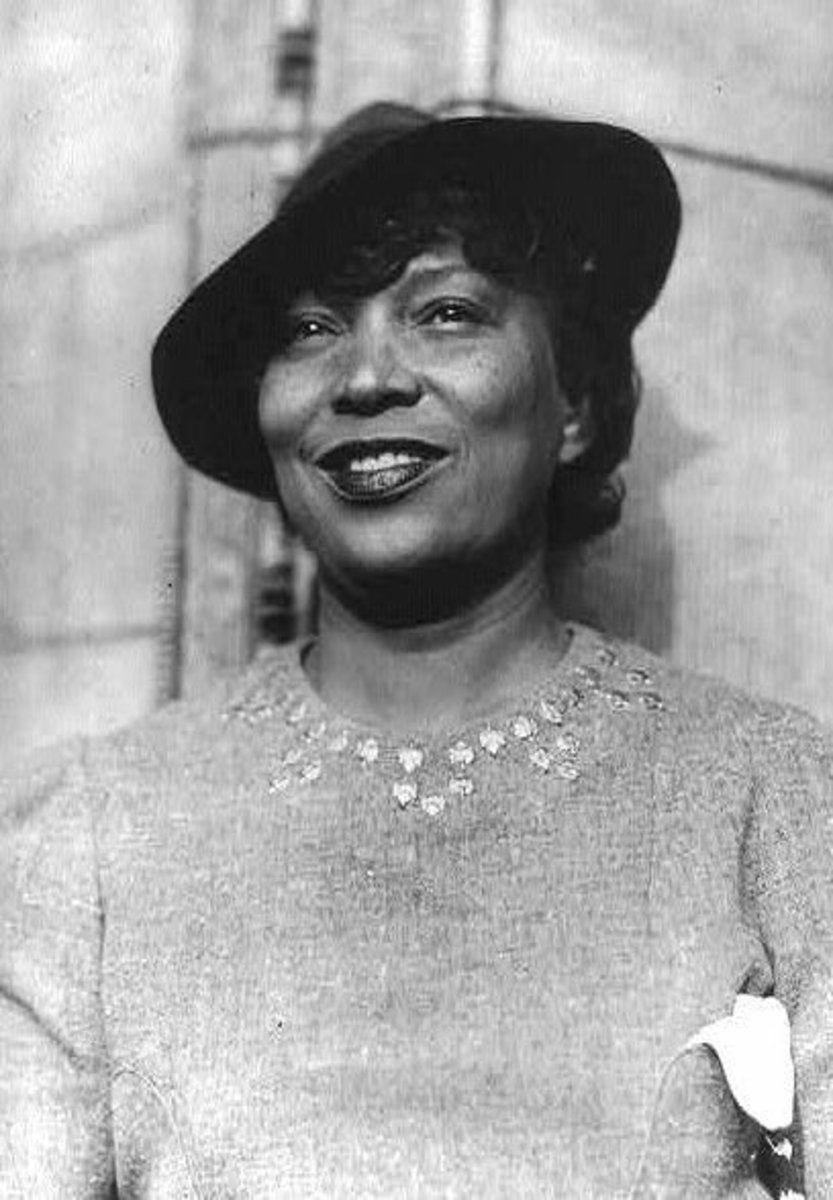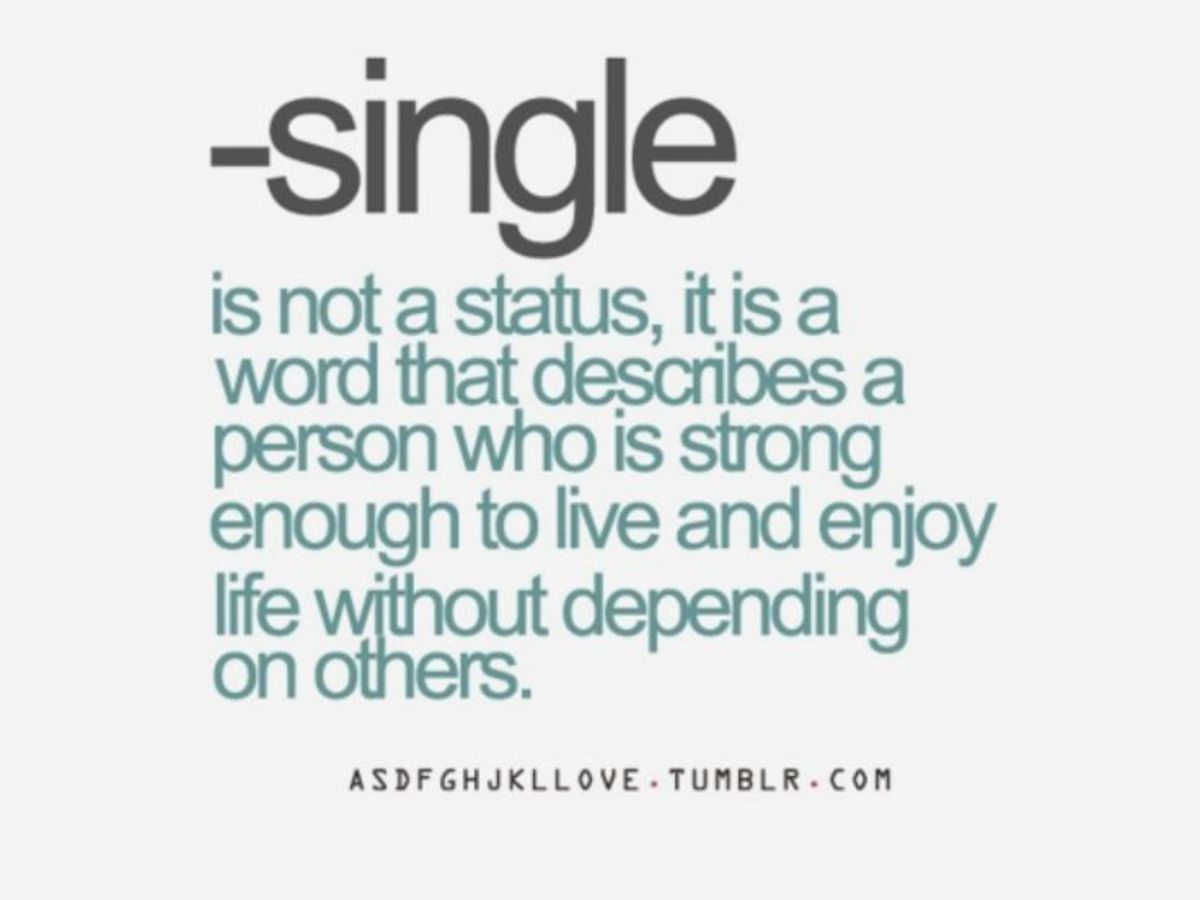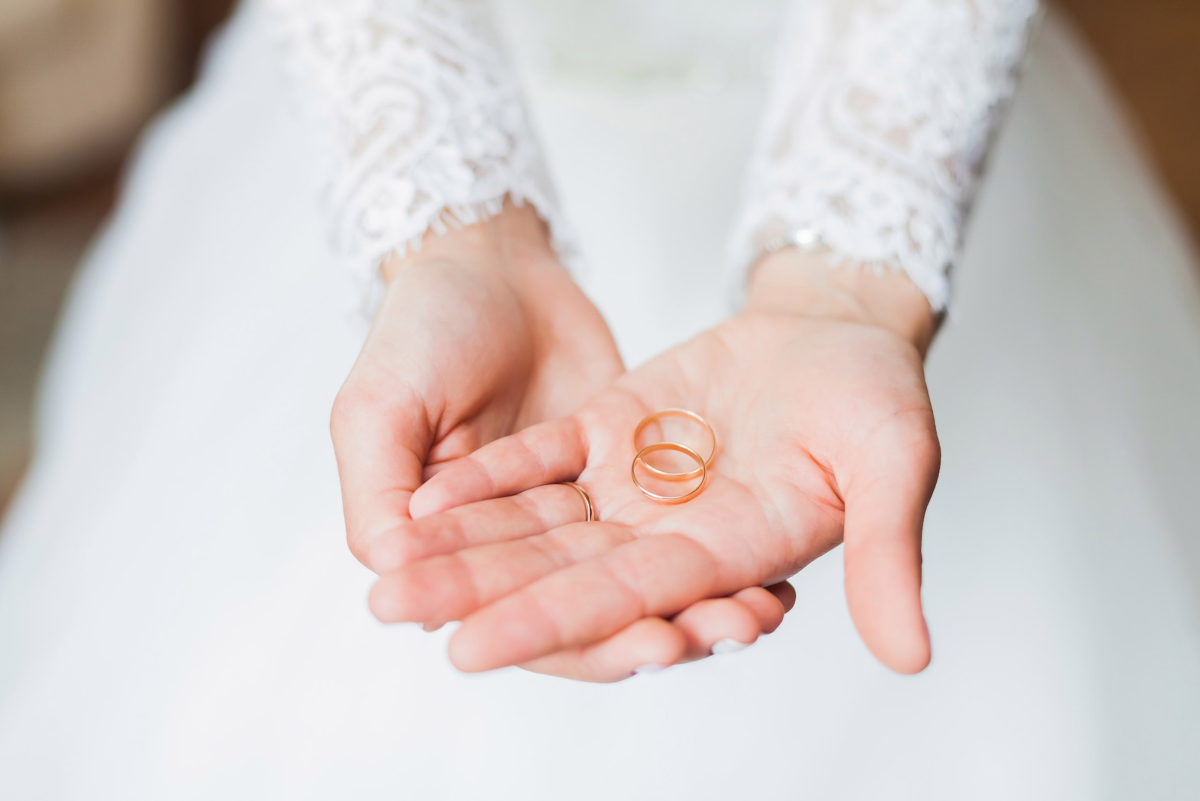Finding Your Identity as a Single Woman in Your Late Twenties
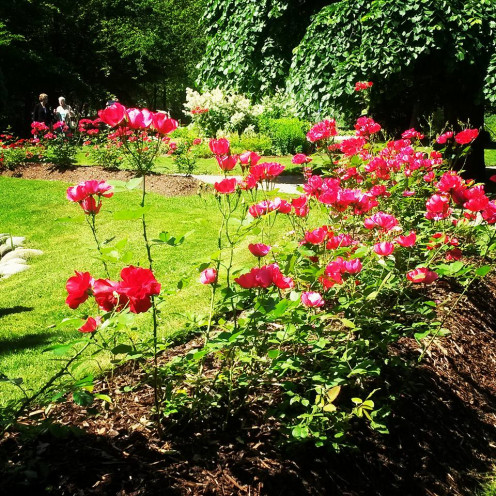
Are You a Single Woman in Your Late Twenties?
On Societal Expectations
It is an unfortunate reality that our society presents the idea of being a single woman later in life as some sort of immeasurable failure. This idea becomes magnified by events around us, as well as by the stereotypes that accompany single life as a woman. Society says that there must be something unappealing about us if we cannot successfully find and maintain a relationship with another individual. Clearly, this is a flawed way of viewing single life for a woman (or a man for that matter) in the 21st century. We are much more advanced than this, and women have come quite a distance to have the place that we do in society today.
As a twenty six year old single female, I am faced with this reality in subliminal, yet powerful ways each day. I see friends marrying young, settling down, starting families-and while I am quite happy for them, I also cannot help but wonder why I am so far behind in terms of typical societal expectations. I have recently come to the realization that, all expectations aside, I do not wish to be married or settled down at any point in the near future, or perhaps ever. My independence is something that I have come to value immensely. I believe that being able to thrive on my own will give me the strength and confidence to be a better partner in any future relationships that I may have, if I choose to have them.
If I am coming across as cold, trust me, I am not. I do enjoy relationships and tend to give much of myself to the other person when I am in them. The challenge for me is to be able to find balance within myself, to not rely solely on others for strength, and to not lose my own identity while in a relationship. In order to do this well in the future, I need to work on being happy by myself now. I am sure there are many of you who may be able to relate to this feeling.
My hope is that this article will be helpful to other women by encouraging them to embrace single life (if they wish to do so, of course). My hope is that other women will find the same sense of empowerment that I have, and will learn to capitalize on their time spent alone. One firm message that I want to share throughout this article is that you do not need to change who you are for anyone, unless you are changing for yourself. If you are single, this is your time to nurture your own personal development.
By the time you reach your late twenties, you may have a few relationships under your belt. Relationships can be wonderful if you are in one of mutual love and respect. They can also be miserable if you find yourself in an unhealthy one. Regardless of the quality of your previous relationships, chances are you have experienced sacrifice of yourself to some extent. If overtime in a relationship, you have sacrificed a significant amount of yourself time and time again, you may feel as though you have lost your own identity by trying to please the other individual.
If you understand how it feels to gradually loose your sense of self in a relationship, I can offer you the comfort of knowing that you certainly are not alone in feeling this way. The good news is being single for a length of time may be a very positive way to counteract this feeling. Many view living alone as a very daunting idea. However, living alone can allow you to have a chance to get back on your feet, and figure out exactly who you are as a person. Chances are, if you live alone, you may be more inclined to visit friends and family more often, to volunteer, to become a member of an organization and to have your own adventures. All of these activities, in turn, may aid you in discovering (or perhaps rediscovering) your own personal identity.

What is Personal Identity?
Personal identity has been defined in many ways. Many of the definitions are philosophical in nature. However the main theme amongst them seems to be that personal identity is very simply what you think you are. In other words, it is how you independently define yourself as a person. This definition can be built around your characteristics, beliefs, activities, strengths, values, family and etcetera. It is literally everything that you value and consider to be an important part of who you are.
It is also important to note that your definition of personal identity is ever changing. It is not set in stone, it is in perpetual motion. It can change vastly from day to day because we as human beings are constantly evolving, learning and expanding.
If personal identity is such an all-encompassing part of who we are, how can it be lost? There are plenty of possible reasons. Many people tie their identity to their possessions, or to their family members or friends. If any of these items are removed, it may leave the individual feeling as if they no longer know who they are. With relationships specifically, it is possible for identity to become lost if you are using the relationship as an escape, or if you are compromising yourself a great deal. Whatever the reason for identity being lost, we certainly feel it emotionally when it is gone.
Finding Your Identity as a Single Woman
If you are able to capitalize on the time you spend as a single woman, you will find eternal gratefulness in simply coming to know yourself much better than you had before. Knowing yourself is the building block to many other positive things in life. It helps you gain confidence, it helps you recognize and use your strengths, and it helps foster a sense of self-compassion. If you beyond a doubt know who you are as an individual, you are significantly stronger in all aspects of living. You will learn to protect your identity and take pride in it. In doing this, you will be better prepared to be in a healthy, loving and committed relationship in the future.
Where do you begin in taking on a task as important as defining and knowing who you are as a person? This journey will be different for everyone. How you begin to define yourself really depends upon you. The sections below provide some guidance for getting you started. I highly encourage tailoring these guidelines to your own experience. There really is no step by step formula to finding yourself. It is more of a continuous process. Understanding that this is a journey will help you to enjoy your own development that much more.
Ask Yourself Difficult Questions
With reflection, you may come to terms with some past circumstances that were self-destructive, or where you behaved in a way that was untrue to you. If you do, try not to beat yourself up about it. Instead, ask yourself why you might have behaved in the way that you did. By asking yourself this type of open ended question, you may find some answers that allow you deal with these situations in a positive light. For example, maybe you acted out due to your lack of self-worth. If you acknowledge why you behaved the way that you did, you will be able to do some work on the underlying issue itself, rather than continue to experience guilt or shame for your past.
Know What You Are Not
Knowing what you are not is often much more straightforward than knowing what you are. Chances are, you may have developed the capability of answering this question easily if you have recently ended an unhealthy relationship. You may have allowed yourself to act in ways to which you were unhappy with. Now that you have allowed yourself to be with yourself again, you may recognize habits, traits, attitudes or behaviours that you no longer appreciate. If you are able to identify things that now exist within yourself that you are not fond of, physically write these traits down on a piece of paper. They are much easier to acknowledge and to work with if they become visual to you. In acknowledging what you are not, or do not want to be, you will begin to gradually piece together what you stand for.
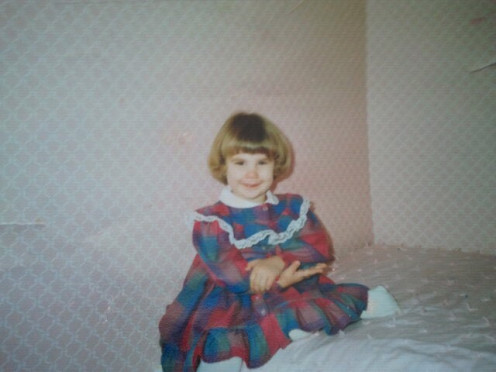
Remember What Made You Happy as a Child
This may sound simple, but sometimes this one takes a little while to fully recollect the answers. You need to recall and appreciate the things that brought you joy when you were a younger person, in order to begin to allow yourself to experience that type of joy in your life as an adult. What were your ambitions then? Maybe when you were younger you wanted to be something that you have not yet fully become. Life often changes our idea of what we want to be, because external expectations are placed upon us. We make choices that are dependant more often upon our need to survive and to provide, rather than to do what brings us joy and happiness. All external influences aside: what makes you feel happiness and joy? Again, make a visual list of these things to remind you of who you had been. This is not to say that everything that made you happy as a child will bring you the same feeling as an adult, but having this knowledge certainly forms a foundation for you to work with.
Nurture Your Passions and Ambitions
As you recall what brings you joy, you will feel compelled to begin to bring these things back into your life. Once you begin to allow yourself to do the things that you love, in spite of all other obstacles, you will only continue to attract more positive things into your life. By feeling good, you change the energy to which you exude. Your energy is a powerful thing. It has the ability to attract more of the good to you. You will start to understand how important it is to fully be yourself and to engage in activities that not only bring you happiness, but that allow you to further define yourself. You will also gain confidence, and perhaps even discover strengths that you were not aware you had.
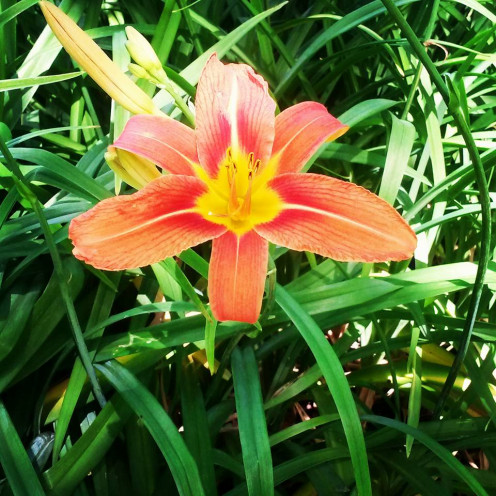
Push Yourself Outside Your Comfort Zone
You will be able to learn more about who you are as an individual, if you allow yourself to be challenged. Each time you step outside of your comfort zone, you will grow and expand by learning new skills, overcoming fears, and by having unfamiliar experiences. Everyone has a comfort zone that is very unique to their own character. Often times your comfort zone tends to be created by the limitations your place on yourself, or feel have been placed on you at some point in time. Challenge these limitations.
Cultivate Non-Romantic Relationships
In addition to spending plenty of time nurturing your own self, you also need to spend time fostering healthy non-romantic relationships. By non-romantic, I am generally referring to your relationships with family members, friends, colleagues, etcetera. Our social support network is one of the greatest predictors of our success. This does not mean that you need to have a large amount of friends to be successful, it means that the strength and meaningfulness of the relationships you have becomes of great importance. Having a solid support network brings you comfort and allows you to share your struggles with someone other than yourself. In addition, if you are able to form and maintain positive non-romantic relationships, you will begin to feel a greater amount of confidence with your romantic relationships in the future.
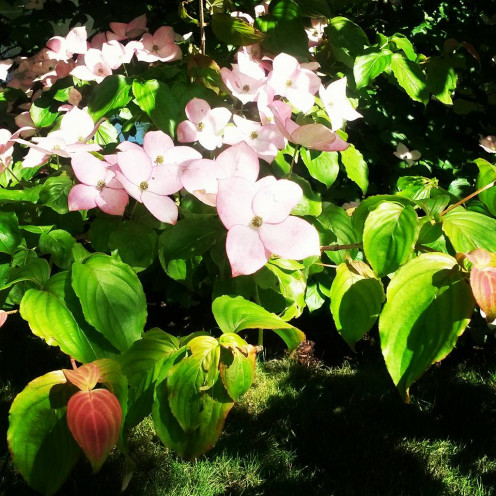
Practice Gratitude Each Day
Recognizing the things you are grateful for will allow you to focus on the positive things in your life while you are single (or in a relationship for that matter). It is very easy to slip into depression after a difficult break up. You will also more prone to depression if you allow yourself to dwell on negative thoughts. Do not ignore your negative thoughts, they have a valid place in your mind as well, however be aware of how long you allow yourself to focus on them. Simply acknowledge them and then let them go. The more you focus on the things that you are grateful for, the more positive momentum you will be able to create for yourself. Negativity will stunt your growth and inhibit your level of creativity. It helps to keep a journal of at least three things that you were grateful for every day.
Enjoy the Ride
All in all, once you begin to change the way that you view your time as a single woman, you will become thankful for the time that you have to develop yourself. You will also become more appreciative of the things you enjoy about relationships as well. You will start to do things differently each day. You will begin to look forward to filling your day with things that bring you joy. It will almost become a part of your purpose to continuously know yourself better. You will begin to change because you want to change, not because another person is asking you to. Through all of these changes, you need to relax and have faith in what is ahead for you. ‘
The Good News
The good news is that the stereotypes are slowly fading, and it is gradually becoming more acceptable to spend a larger amount of time in your twenties, or even thirties, finding yourself before settling down in a committed relationship. Other authors have paved the way for women to begin to consider alternate ways of living. Not all of us are destined to be married, or to have children, and that is completely fine (once we allow it to be). Everyone is different. Everyone has different aspirations in life. The most important thing is to figure out what your definition of happiness is, and to stay true to yourself, always, regardless of external expectations.
-
Eckhart Tolle: A New Earth. Awakening Your Life’s Purpose. 2008.
-
Eric Kleinburg. Going Solo-The Extrodinary Rise and Surprising Appeal of Living Alone. 2013.
-
Shawn Anchor. The Happiness Advantage. Crown Business Publishing.2010.
© 2015 Nora Heighton


